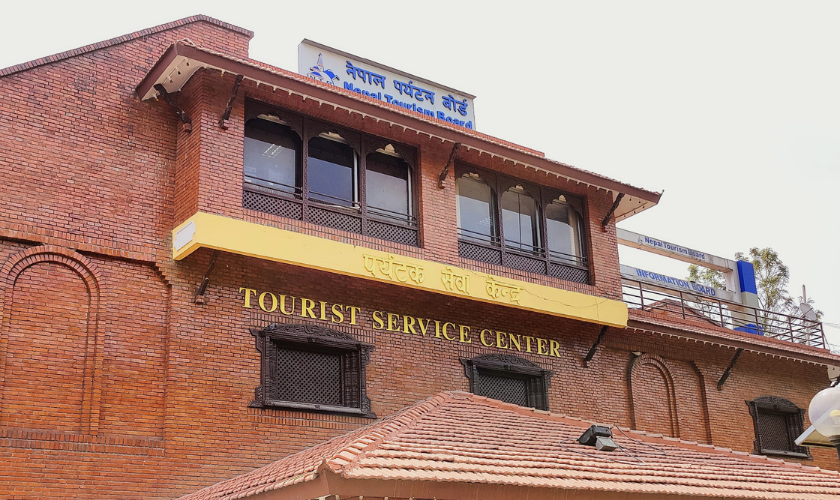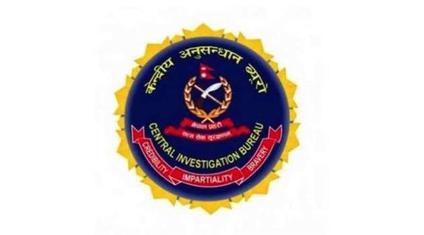Finance Minister Bishnu Prasad Paudel on Thursday presented a budget of Rs 1.964 trillion for the fiscal year 2025/26, with a focus on increasing capital expenditure, improving service delivery, and enhancing revenue mobilization. Presenting the budget in a joint meeting of the Federal Parliament, the finance minister said the government aims to achieve an economic growth rate of 6 percent and keep inflation at 4.5 percent.
Govt Allows Outbound Investment by Nepali Industries, Introduces 'Sweat Shares' Provision
In a significant policy shift, the government has introduced a provision allowing Nepali industries to invest abroad—up to 25 percent of the total export value of goods and services. At least 50 percent of the income earned from such investments must be repatriated to Nepal. These outbound investments will be managed by the Investment Board Nepal.
Furthermore, the budget includes a provision for Nepalis to acquire 'sweat shares' in foreign companies in exchange for their knowledge, technology, or service contributions.
The government has brought a major program targeting youth employment by introducing collateral-free loans ranging from Rs 200,000 to Rs 2 million at an annual interest rate of 3 percent. The loans will be issued based on criteria such as the applicant’s academic qualifications, business registration, technical skills, and business proposal. "The objective is to provide easy access to finance for educated youth who want to start their own businesses," said Minister Paudel.
To promote innovation and entrepreneurship, the government has allocated Rs 730 million for the promotion of startup businesses. The Youth Self-Employment Fund will be expanded to all 753 local levels, and Innovation and Entrepreneurship Centers will be established in each province to support young entrepreneurs and innovators.
Increase in Investment in Infrastructure and Roads
The government has increased the budget for the construction of roads and physical infrastructure, with a focus on completing key national pride projects. It has allocated 407.89 billion (20.8 percent) for development expenditure.
Finance Minister Poudel said Rs 2.6 billion has been allocated for completing the Nagdhunga and Siddhababa tunnel roads. Likewise, Rs 2.119 billion has been allocated to upgrade the Gaddachowki–Attariya section of the East-West Highway. The government aims to expand 422 kilometers of road sections to four lanes in the upcoming fiscal year.
The Kathmandu-Terai-Madhesh Expressway, one of Nepal's largest infrastructure projects, will be completed within the next three years, the minister said. The government has also prioritized the construction of the Nijgadh International Airport, while Bhadrapur and Tarigaun airports will be upgraded and a new airport will be constructed in Surkhet.
Largest Allocation Goes to Education Sector
The education sector received the largest allocation in the budget. The Ministry of Education, Science, and Technology has been allocated Rs 211 billion. The government has announced a program to select 100 schools and provide them with Rs 2.5 million each to improve the quality of education. Rs 10.19 billion has been set aside for the midday meal program, which will benefit around 2.8 million students. Additional allocations have been made to strengthen universities and research institutions, said Minister Poudel.
More Funds for Health Infrastructure and Free Services
The government has announced a budget of Rs 83.72 billion for the health sector in fiscal year 2025/26, with a focus on improving infrastructure and access to free healthcare services. According to Finance Minister Bishnu Prasad Paudel, the government will continue providing free dialysis, maternity care, and emergency services for the poor and disadvantaged. Vaccination programs, including for cervical cancer, will be expanded.
The National Health Insurance Program will be strengthened, with an increased subsidy of Rs 3,500 per family for 5 million households. The government has also pledged to improve the physical infrastructure and services of major hospitals including Bir Hospital, Kanti Children's Hospital, and the Shahid Gangalal National Heart Centre. “Health institutions in all provinces will be equipped with necessary resources to provide accessible and quality care,” said Paudel.
Expanded Social Security Coverage and Housing for the Poor
The budget has allocated Rs 157.73 billion for the social security sector, with continued emphasis on allowances for senior citizens, persons with disabilities, and single women. Monthly social security allowances have been maintained, with a commitment to timely distribution.
In addition to allowances, the government plans to build 10,000 affordable houses for underprivileged families across the country. “Our goal is to ensure that no citizen is left behind in access to basic housing,” Finance Minister Paudel said. Meanwhile, the Prime Minister’s Employment Program will be expanded to reach 200,000 youths, offering work for a minimum of 100 days annually.
Elderly Allowance Eligibility Raised to 70 Years
In a significant policy reversal, the government has increased the minimum age to qualify for the elderly allowance from 68 to 70 years, reversing a populist measure introduced before the 2022 elections. Deputy Prime Minister and Finance Minister Bishnu Paudel explained that this change was necessary to address the growing fiscal burden caused by generous welfare schemes. The previous age limit of 68 was deemed fiscally unsustainable. The High-Level Commission on Economic Reforms also recommended restoring the age limit to 70 to maintain economic discipline. While the decision may trigger political debate, it signals the government’s willingness to make tough choices for long-term economic stability.
No Salary Hike for Civil Servants
In a move likely to disappoint many public employees, the government has decided not to increase civil servants’ salaries in Fiscal Year 2025/26. Deputy Prime Minister and Finance Minister Paudel acknowledged the need to adjust pay to keep up with rising living costs but cited budget constraints as the main obstacle. “While we recognize the necessity to revise civil servants’ remuneration, current resource limitations make it impossible to provide a salary hike this year,” he said. To help ease inflationary pressures, however, the government has raised the dearness allowance (cost-of-living allowance) by Rs 5,000. This announcement comes amid widespread public concern over inflation and follows speculation about a possible salary increase, which will now have to wait.
Boost for Agricultural Modernization and Insurance Programs
In a bid to reduce the country’s growing food import bill and promote self-sufficiency, the government has allocated Rs 59.92 billion for the agriculture sector. The budget gives priority to mechanization, commercial farming, and the use of improved seeds and technology.
The Prime Minister's Agriculture Modernization Project will be expanded, along with subsidies for fertilizers and improved irrigation systems, said Minister Poudel. To protect farmers against losses, the government will continue the existing crop and livestock insurance schemes and make them more accessible. Finance Minister Paudel emphasized the need to attract youth and the private sector into agriculture, stating, “Modernizing agriculture is key to food security and rural development.”
No New Taxes on EVs; Excise Duty Hiked on Liquor and Tobacco
In an effort to promote environmentally friendly transportation, the government has continued its policy of supporting electric mobility. Finance Minister Bishnu Prasad Paudel announced that no new taxes would be imposed on electric vehicles (EVs) this year.
To further encourage the adoption of EVs, the customs duty on EV charging equipment has been fixed at just 1 percent. In addition to this, all other applicable taxes on EV chargers have been waived, making the installation and use of charging infrastructure more affordable. “The goal is to promote the use of clean energy in the transport sector and reduce dependency on fossil fuels,” said the finance minister.
At the same time, the government has revised excise duties on products considered harmful to public health. Excise taxes on liquor, beer, tobacco, and cigarettes have been increased, a move intended to discourage their consumption. According to the minister, “Increasing taxes on these goods is aimed at minimizing their negative impact on health and generating revenue for the health sector.”
The revised rates are expected to contribute to public health goals while also generating additional tax revenue. However, the specific rate increases for each product category were not detailed in the budget speech itself. The minister indicated that necessary amendments would be made to the Value Added Tax (VAT) and Excise Duty laws to implement these changes
Govt to Auction Assets of Cooperative Fraudsters
To protect depositors of troubled cooperatives, the government will establish a revolving fund to refund their savings. “Deposits up to Rs 500,000 in cooperative institutions will be safeguarded through the Deposit and Credit Protection Fund,” Minister Paudel said. He added that seed capital for the revolving fund will come from the auction of assets seized from individuals who misused government funds.
Boost for Sports Infrastructure
The budget has allocated Rs 420 million for the construction and upgrading of cricket stadiums in various provinces. An international-standard stadium will be constructed in Damak, Jhapa, and high-altitude stadiums will be built in Solukhumbu, Mustang, and Jumla. Additional provisions have been made to enhance sports training centers and provide scholarships to talented athletes.
Govt to Divest 30% Shares of Nepal Telecom to the Public
The government has announced plans to divest 30 percent of its shares in Nepal Telecom, the state-owned telecommunications company, to the general public. “Nepal Telecom will divest 30 percent of its shares to the public, while the government will retain the majority stake,” Minister Paudel stated during his budget speech.
Support for Subnational Governments
The government has allocated Rs 60.66 billion to provinces and Rs 88.97 billion to local levels under the fiscal equalization grant. These amounts have been determined based on the recommendation of the National Natural Resources and Fiscal Commission. Additional conditional, special, and supplementary grants will be provided to support priority projects at the subnational level.
| Major Highlights of the Budget |
| Govt targets 6% economic growth for next fiscal year |
| Nepali industries allowed to invest abroad |
| Three new tunnel roads to be constructed |
| Multinational companies permitted to lease apartments |
| Only 1% customs duty on EV charging equipment |
| Elderly allowance eligibility raised from 68 to 70 years |
| Excise duty increased on alcohol and tobacco products |
| Taxes on electric vehicles remain unchanged |
| Govt to divest 30% of Nepal Telecom shares to the public |
| Bunker-to-barracks program to continue |
| No salary hike for civil servantsn only a modest allowance |
| Renovation of Sheetal Niwas to begin in upcoming fiscal year |
| Rs 500 million allocated to metal and precious stone production |
| Rs 2.6 billion allocated for Nagdhunga and Siddhababa tunnels |
| International-standard stadium to be built in Damak |
| Rs 2.5 million grant each for 100 schools under new program |
| Collateral-free loans up to Rs 2 million for educated youth |
| Rs 740 million set aside for digital infrastructure and ecosystem |
| Rs 330 million allocated to increase rice production |
| Rs 19.9 million allocated for national employment |
| Rs 109 billion allocated for social security allowances |
| Nijgadh International Airport project prioritized |
| Petroleum exploration to begin in Palpa, Sunsari, and Dang |
| Nepalis allowed to hold ‘sweat equity’ in foreign companies |
| Over 500,000 to receive land ownership certificates |
| Rs 28.82 billion allocated to supply 600,000 tons of fertilizer |
| Assets of cooperative fraudsters to be auctioned |
| Rs 730 million allocated for concessional loans to startups |
| Rs 60.66 billion allocated to provinces for fiscal equalization |












